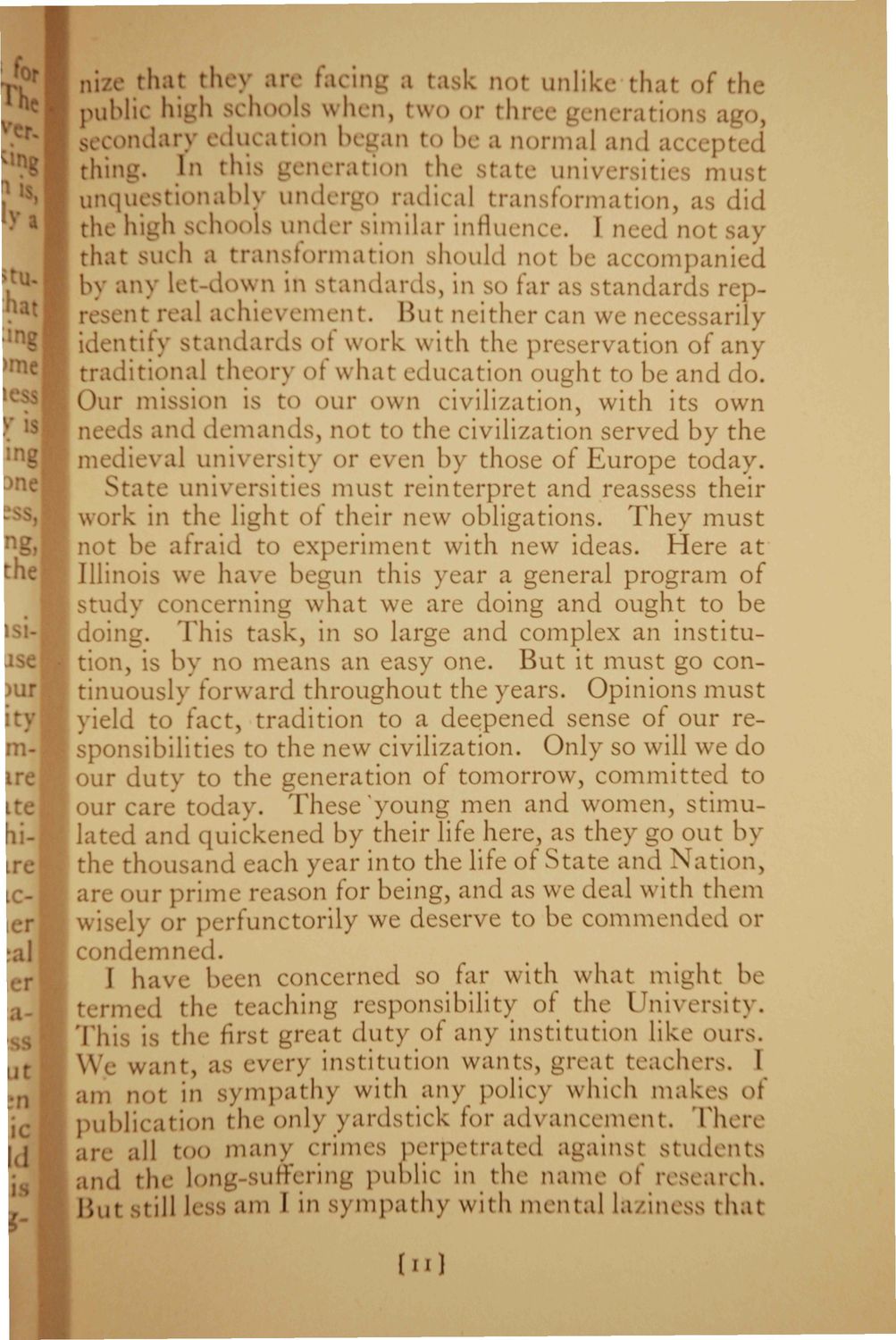Caption: Booklet - Installation of UI President (1931)
This is a reduced-resolution page image for fast online browsing.

EXTRACTED TEXT FROM PAGE:
t CN t ni/ that th ire facing a t;i k not unlike that of th public hi h schools when, two or three generation ag , >ndan I u cat ion began to be a normal and a< pt< I S( thing. In this g neration the j ate universiti< must I tu. ing r :s Dm unquesti ablj undergo radical transformation, as did the hi h schools under similar influence. 1 need nor say that such .1 transformation should not be accompani< I h\ any let dow n in standards, in so far as standard represent real achievement. But neither can we nece ;arily identify standards of work with the preservation of any traditional theorj of what education ought to be and do. Our mission is to our own civilization, with its own need and demands, not to the civilization served by the medicx J university or ven by those of Europe today. State universitk must reinterpret and reassess their work in th light of their new obligations. They must not be afraid to experiment with new ideas. Here at Illinois we have begun this year a general program of 1 studvi •oncernnm what we are doing and ought ~ ~ be to doing. This task, in so large and complex an institution, is by no means an easy one. But it must go continuously forward throughout the years. Opinions must yield to fact, tradition to a deepened sense of our responsibilities to the new civilization. Only so will we do our duty to the generation of tomorrow, committed to OUT< ire today. These "young men and women, stimulated and quickened by their life here, as they go out by the thousand each year into the life of State and Nation, arc ur prime reason for being, and as we deal with them the : - )ur tv :nire tt< hir< c- wisely or perfunctorily we deserve to be commended or I IC1 l- condemned. I have been concerned so far with what might be termed the teaching responsibility of the University. Thi is the first great duty of any institution like ours. llt ic I1 i- al] t »o many crimes perpetrated against students an 1 th long-suffering public in the name of res u\ h. ai want, as every institution wants, great r achers. 1 am not in sympathy with any;_ policy which makes of mblii ition the only yardstick for advancement. There 1 But still less am I ins mpathy with mental laziness that (•'I \
|